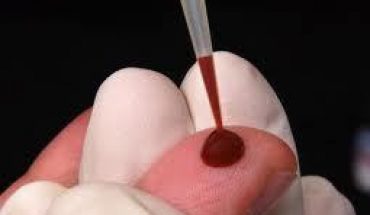Hypertensive heart disease is a series of conditions that increases the arterial pressure, thus causing arterial hypertension, which has adverse effects on the heart. Hypertension is characterized by a chronic heightening of the diastolic, and systolic blood pressure above normal blood pressure of 120/80 mm Hg. There are two types of hypertension; secondary and essential. Secondary hypertension has an identifiable underlying cause, and affects a only a few people. Essential hypertension, on the other hand, has no identifiable cause, but affects approximately 95% of all hypertensive patients. Risk factors for hypertension include; hypokalaemia (low blood potassium levels,) smoking, obesity, increasing age, high alcohol intake, water retention, and genetic factors.
How hypertension causes hypertensive heart disease
Hypertension is an increase in pressure in blood vessels. The heart works against this pressure, fulfilling its role as a pump. Since the pressure is higher than normal the heart works harder. Just like with exercising any muscle, the resistance faced by the heart, causes the heart muscle to thicken. This leaves less space in the chambers of the heart for the storage, and passage of blood. In addition because of the increased muscle mass, the heart must work harder to pump blood to the body. In hypertensive heart disease, the wall of the blood vessels are severely thickened due to hypertension.
Conditions resulting from hypertensive heart disease
Congestive heart failure
Congestive heart failure is characterised by a deficiency of the heart as a pump, making it unable to supply the required amount of blood the body needs. This deficiency results from the overall thickening, which causes a reduction in the volume of oxygen carried to the cells of the heart and results in a failing heart.
Ischaemic heart disease
Ischaemic heart disease is a reduction of blood flow to the heart, which leads to a reduction in the concentration of oxygen that reaches the heart. One of the causes of this disease is the thickening of the muscles of the heart, and the blood vessels, thus increasing pressure and decreasing blood flow.
Worsening Atherosclerosis
Atherosclerosis is a condition where there is a build up plaque in the coronary artery, or the artery supplying oxygen to the heart. This condition creates a partial blockage of the blood vessel, which reduces blood flow to the heart. Since hypertensive heart disease results in the thickening of the blood vessels, this means that the total circumference inside of the coronary artery, already with a plaque build up, is lessened, thus worsening atherosclerosis.
Left ventricular hypertrophy
This is the thickening of the left ventricular muscle of the heart. The left ventricle receives oxygenated blood from the left atrium, and supplies the heart, as well as the rest of the body, with oxygen via the aorta. Hypertensive heart disease that causes thickening, results in a reduced space for storage in the left ventricle, and reduced oxygen concentration going to the heart and body.
How hypertension causes hypertensive heart disease
Hypertension is an increase in pressure in blood vessels. The heart works against this pressure, fulfilling its role as a pump. Since the pressure is higher than normal the heart works harder. Just like with exercising any muscle, the resistance faced by the heart, causes the heart muscle to thicken. This leaves less space in the chambers of the heart for the storage, and passage of blood. In addition because of the increased muscle mass, the heart must work harder to pump blood to the body. In hypertensive heart disease, the wall of the blood vessels are severely thickened due to hypertension.
Conditions resulting from hypertensive heart disease
Congestive heart failure
Congestive heart failure is characterised by a deficiency of the heart as a pump, making it unable to supply the required amount of blood the body needs. This deficiency results from the overall thickening, which causes a reduction in the volume of oxygen carried to the cells of the heart and results in a failing heart.
Ischaemic heart disease
Ischaemic heart disease is a reduction of blood flow to the heart, which leads to a reduction in the concentration of oxygen that reaches the heart. One of the causes of this disease is the thickening of the muscles of the heart, and the blood vessels, thus increasing pressure and decreasing blood flow.
Worsening Atherosclerosis
Atherosclerosis is a condition where there is a build up plaque in the coronary artery, or the artery supplying oxygen to the heart. This condition creates a partial blockage of the blood vessel, which reduces blood flow to the heart. Since hypertensive heart disease results in the thickening of the blood vessels, this means that the total circumference inside of the coronary artery, already with a plaque build up, is lessened, thus worsening atherosclerosis.
Left ventricular hypertrophy
This is the thickening of the left ventricular muscle of the heart. The left ventricle receives oxygenated blood from the left atrium, and supplies the heart, as well as the rest of the body, with oxygen via the aorta. Hypertensive heart disease that causes thickening, results in a reduced space for storage in the left ventricle, and reduced oxygen concentration going to the heart and body.





